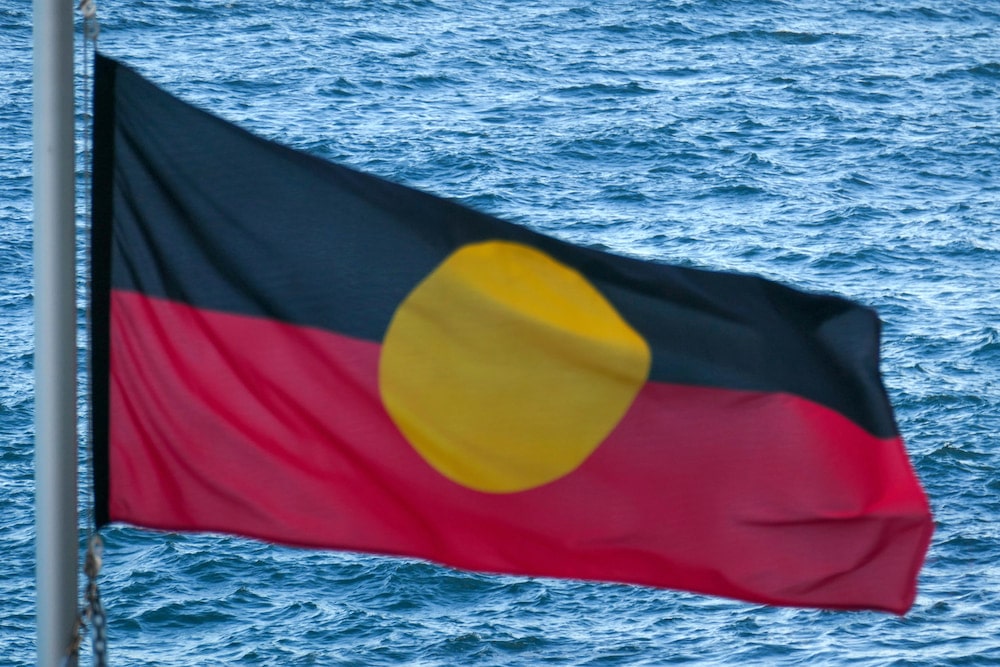For thousands of years, advocates say, Aboriginal people managed Australia’s waterways – now, they control 0.2 per cent of water allocations, and many in remote communities do not have access to clean water. They seek to redress what they consider a historical wrong.
A two-day National First Nations’ Water Roundtable at the Australian National University (ANU), starting today, will discuss national water reforms to improve Indigenous Australians’ health, wellbeing, and economic self-determination.
“Water is inseparable from our social, cultural and economic worldview,” the event’s chair, Professor Peter Yu AM, Vice-President First Nations at ANU, said. “But at the moment, when it comes to water rights, current policies, law, and practices reflect an era of terra nullius when First Nations’ traditional ownership and cultural connections were not recognised in Australian law.
“While First Nations Australians have access to more than 50 per cent of the Australian landmass through native title and land rights, we have access to less than one per cent of water allocations.”
Only a fifth of a percent (0.2 per cent), in fact, despite making up 4 per cent of the population.
“We are the Traditional Owners and managers of these waterways,” Professor Yu said. “But a vital resource that we managed for millennia has been taken from us. And as independent agencies such as the Productivity Commission have indicated, our voices and views on how to better care for and sustainably use water are largely ignored.
“This is undermining self-determination and Australia’s commitment to the United Nations Universal Declaration of the Rights of Indigenous Peoples.”
Under that Declaration, Indigenous people have the right to maintain and strengthen their spiritual relationship with land, water, and other resources, and states must obtain their consent before approving any project affecting those resources, including developing, using or exploiting water. Likewise, the National Water Initiative (2004) committed to recognise Indigenous needs in relation to water access and management, consult Indigenous representatives in water planning wherever possible, and ensure water plans incorporated Indigenous social, spiritual, and customary objectives.
But the Australian Human Rights Commission’s Native Title Report (2008) argued that Australian law and policy did not adequately recognise Indigenous rights in water, while Indigenous people were historically excluded from water management policy. Similarly, the Productivity Commission’s Inquiry Report into National Water Reform (2020) found that progress against the NWI’s commitments were slow, and its objectives not achieved.
Jamie Lowe, CEO of the National Native Title Council (NNTC), and Dr Joe Morrison, CEO of the Indigenous Land and Sea Corporation (ILSC) – the ANU First Nations Portfolio’s partners on the Roundtable – called today for shared governance in responsible water allocation, new arrangements for First Nations’ ownership and management of water, and an Indigenous-led national approach to rights in freshwater.
Dr Morrison argued that separate land and water titles are barriers to Indigenous access to commercial water rights. “First Nations people have never separated land and water, even saltwater, and that’s why it’s vital to explore ways to improve Indigenous access to natural resources,” he said.
Speaking at the Roundtable, the Hon Tanya Plibersek, Federal Minister for the Environment and Water, committed to extend ownership of water to First Nations people, and guarantee clean water to every Australian.
The question of water ownership, Ms Plibersek stated, was “a direct legacy of dispossession”.
“If you owned land, you got water licences. But if you didn’t own land, you weren’t getting water entitlements either. … This has held First Nations people back, in very real ways. As anyone in regional Australia will tell you – if you don’t have water, you don’t have a viable business model.”
Ms Plibersek said that First Nations people in the Murray-Darling Basin would receive $40 million through the Aboriginal Water Entitlement Program to invest in water for cultural and economic activities. The government will meet them in July and August to determine purchasing principles and consider interim governance arrangements.
The government will also design national water holding arrangements for First Nations People that are relevant, appropriate, and reflect their needs and aspirations, Ms Plibersek said. The Labor Government wants an inland water target added to the National Agreement on Closing the Gap: “A target to drive the expansion of First Nations water holdings, with a regular reporting mechanism on progress.” The Coalition of Peaks is reviewing the baseline data before it signs onto a specific target.
The Federal Government will invest $150 million for water security projects in Indigenous communities through the National Water Grid Investment Framework.
More than 25,000 people in remote Australia do not have water that meets basic health guidelines, she noted, while more than 600,000 have cloudy, murky water that does not taste right. Unclean water contributes to heart problems, trachoma, blindness, diabetes, lung conditions, and cardiovascular disease.
The $150 million will be used to install pipes that are resilient, robust, and easy to fix; treat water without using expensive chemicals; use water sources that are sensitive to country, practical to supply, and resilient to climate change; and train locals to maintain the systems.



